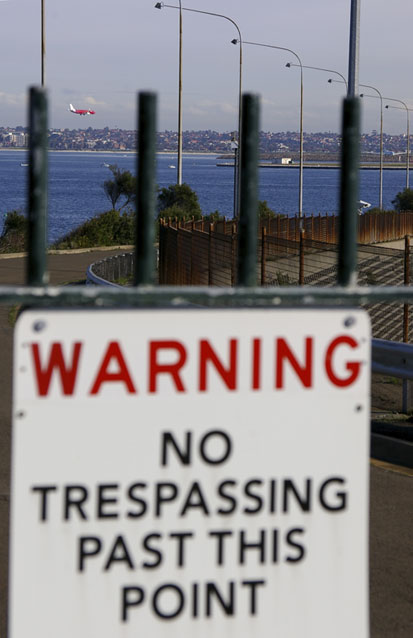Brussels Backburners Security
 The interior ministers of the 27 EU member
states have resolved an “action plan” to tighten air cargo
security. However, upon examining the “holistic approach”
agreement closer, it turns out to be a mere wish list containing many
demands, proposals, and intentions for times ahead.
The interior ministers of the 27 EU member
states have resolved an “action plan” to tighten air cargo
security. However, upon examining the “holistic approach”
agreement closer, it turns out to be a mere wish list containing many
demands, proposals, and intentions for times ahead.
The paper (tiger) is completely missing
immediate, tangible efforts for present implementation that would make
international cargo transports more secure.
How controversial and personal this topic
is among EU politicians was demonstrated when Germany’s interior
minister, Thomas de Maizière, advocated a multi layer concept which
includes banning air freight transports from airports considered to be
unsafe. Favoring an EU-wide black list on
insecure airports is a direct response to the recent discovery of explosive
devices hidden in packages originating from Yemen. However, this black
list proposal was rejected by a majority of his minister colleagues during
the recent meeting.
Instead, Brussels’ summit members
decided to tighten air cargo security right on the spot and to first establish
a working group consisting of EU officials and industry experts that would
advise on necessary changes concerning the current security regime. Transport
Commissioner Siim Kallas seemed appeased: "Security standards at
European airports are widely acknowledged as being amongst the highest
in the world. But the threat is evolving and we must keep our defenses
under constant review. That is why we rapidly convened a high-level group
involving Commission and Presidency to draw up a joint set of EU actions
to address the new threat within a short timeframe.“
 His
colleague, Cecilia Malmstroem, the Commissioner for Home Affairs, added
that in order "to ensure an adequate response to terrorist threats,
a more streamlined cooperation and coordination between the transport
and justice and home affairs sector must be developed at EU level. This
challenge is of crucial importance to aviation security, but goes far
beyond this specific threat.” His
colleague, Cecilia Malmstroem, the Commissioner for Home Affairs, added
that in order "to ensure an adequate response to terrorist threats,
a more streamlined cooperation and coordination between the transport
and justice and home affairs sector must be developed at EU level. This
challenge is of crucial importance to aviation security, but goes far
beyond this specific threat.”
Coordinating, considering, intending, reviewing—here
is an excerpt of what is black and white in the “action plan”:
• Criteria
to identify cargo presenting a particular risk will be defined, as well
as a mechanism to allow for the evaluation of security standards for airports
outside of the EU. Specific commitments on consignment security will be
sought from EU carriers operating from non-EU countries.
• Consideration
will be given to the development of standardized training packages, to
ensure harmonized understanding of the EU rules.
• Research
will be conducted in order to enhance existing screening methods and technologies
for cargo and to develop new possibilities.
• The
EU inspection regime will be expanded to ensure that the agreed security
controls are properly implemented on the ground.
• It
is vital that information about incidents, new threats and emergency measures
is shared as quickly as possible, so that new threats and risks can be
tackled immediately. Steps will be taken to establish, facilitate and
strengthen the flow of such information.
• A
common all-source EU threat assessment capability will also be developed,
with input from all relevant agencies at Member State and EU level. On
this basis, the Commission will produce aviation security risk assessments
on a regular basis.
• ICAO
audits and capacity-building initiatives should be used as primary tools
to strengthen aviation security, including cargo supply chains in non-EU
countries. The EU should play an active role in these activities as such
actions will not only improve the security in non-EU countries, but will
also vastly benefit global trade.
One critical observer commented, “A
toothless paper tiger was produced by the panel to sooth the public, but
there is little to show that it deserves the title ‘EU action plan’
for improved air freight security.”
Heiner Siegmund/Flossie
|




